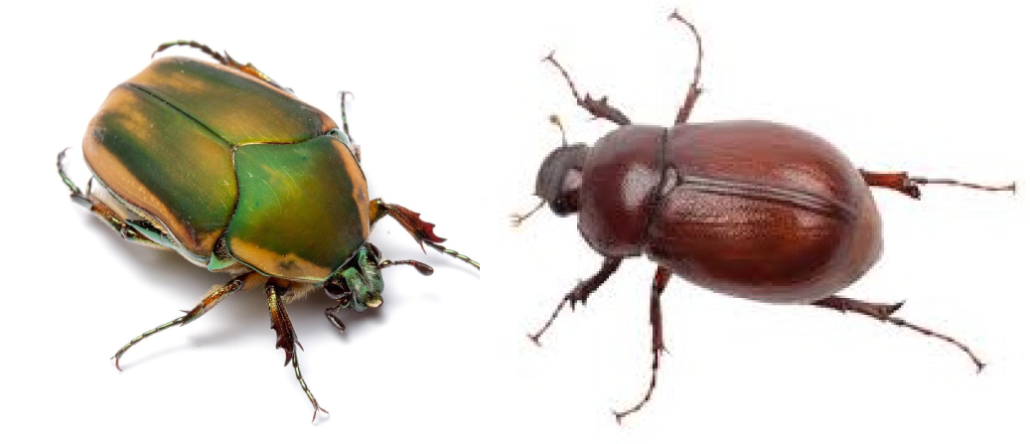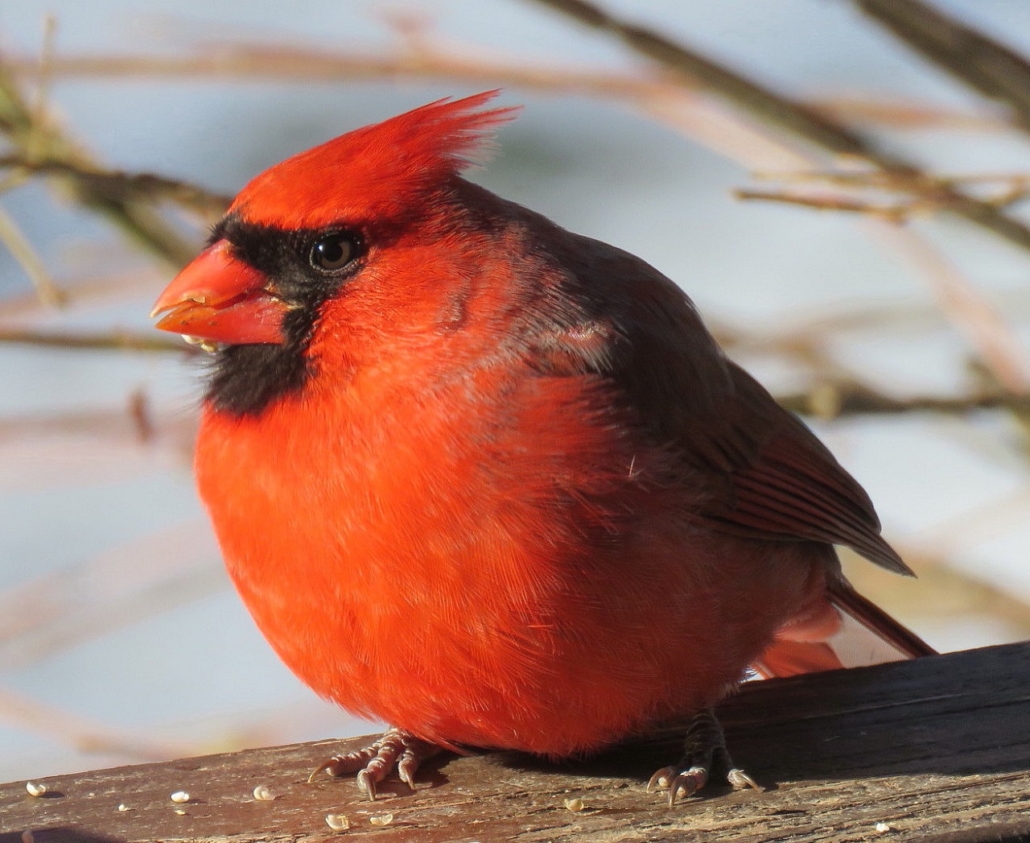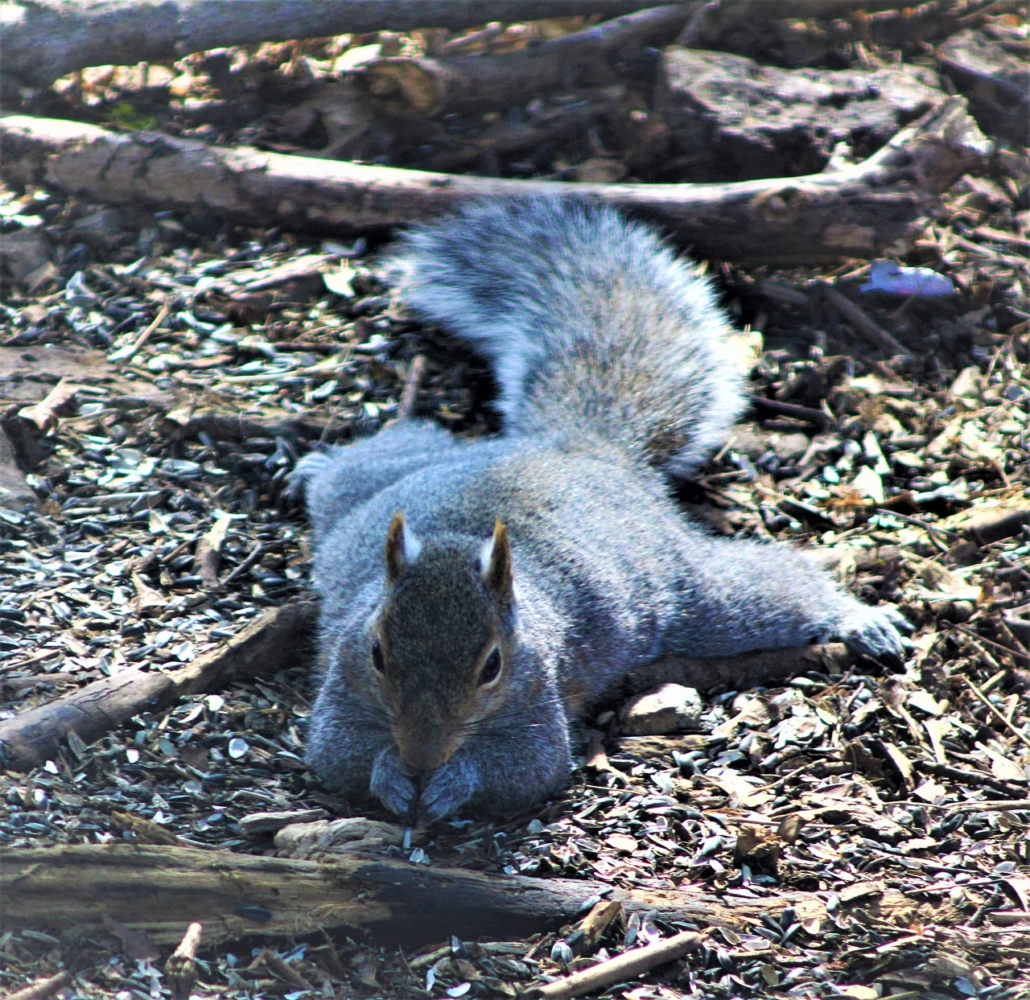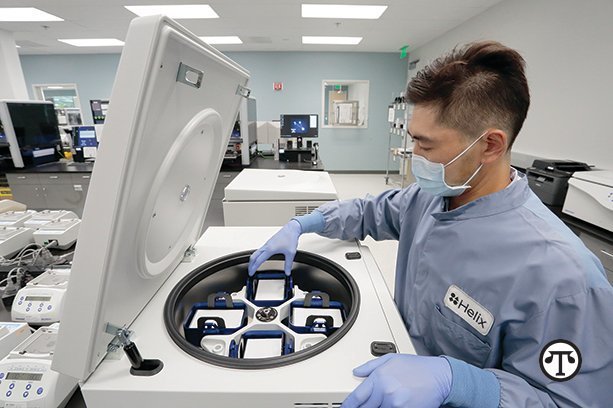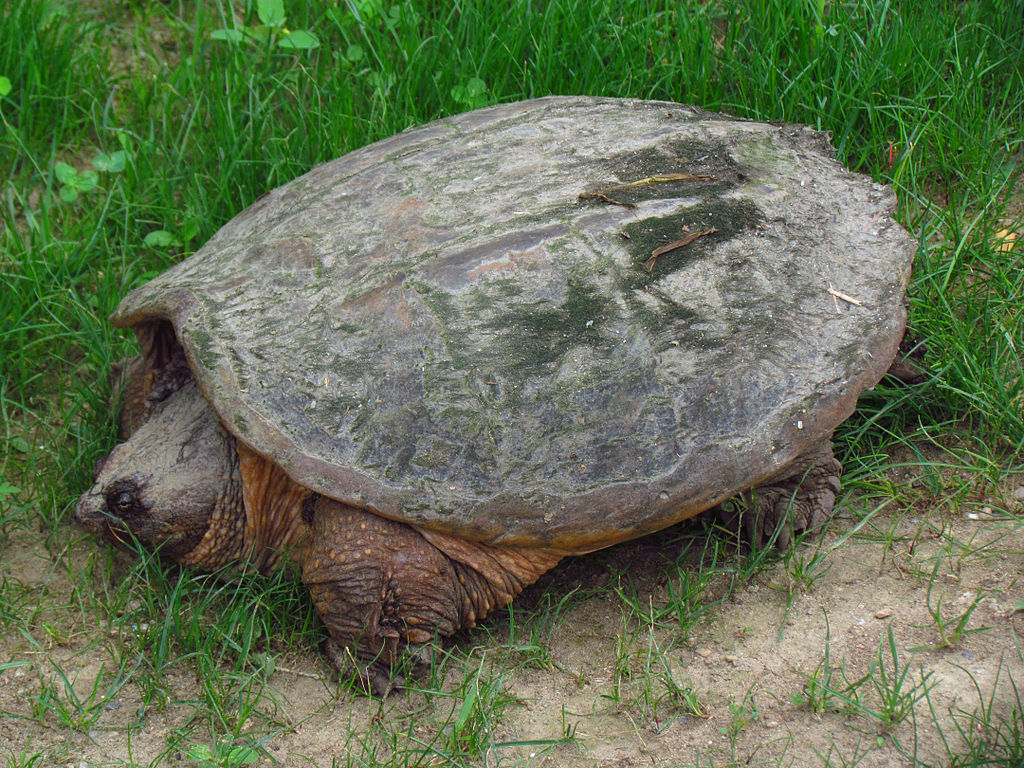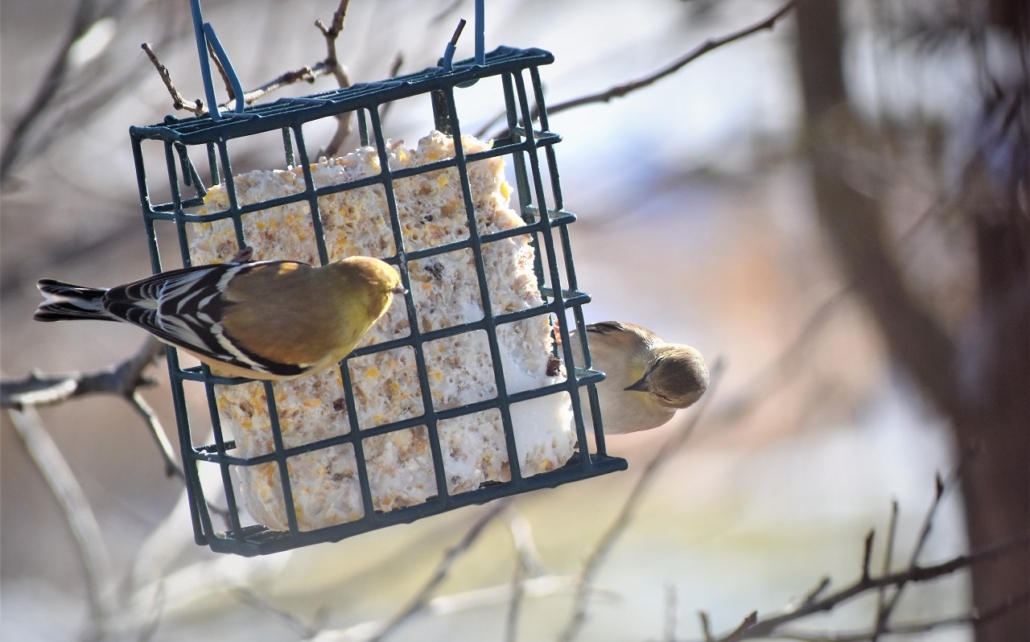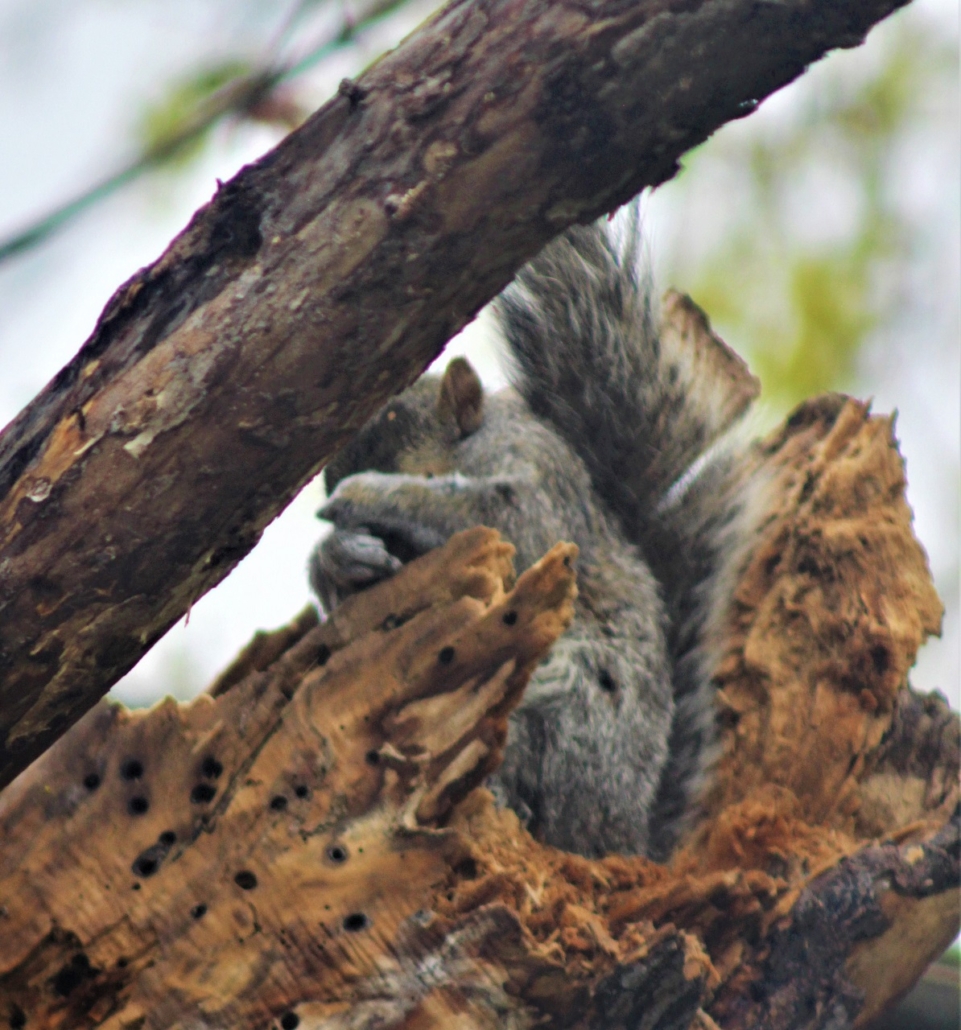SCORES & OUTDOORS: Where have all the June bugs gone?
 by Roland D. Hallee
by Roland D. Hallee
Well, it’s the middle of June and I have yet to see a June bug this year.
Generally, June bugs, Phyllophaga, do make their appearance in mid- to late-May. So why are they called June bugs? It all depends on what you want to call them. They are also known as May beetles and June beetles. But, the name is derived from the fact that adult June bugs emerge from the soil at the end of spring or the beginning of summer.
Females bury their eggs just below the soil surface in the fall, they pupate and emerge in the spring. They hatch within three to four weeks and feed on grass and plant roots from several months to as long as three years. In spring, these grubs, as they are called, grow into pupae. Within three weeks, these mature into adult June bugs.
Grubs, when full grown, live in the soil and feed on plant roots, especially those of grasses and cereals, and are occasional pests in pastures, nurseries, gardens and golf courses. An obvious indication of infestation is the presence of birds, especially crows, peeling back the grass to get to the grubs. A way to test for the presence of these beetles is drenching an area of lawn with water, that will cause larvae to emerge at the surface.
Some small mammals, including skunks and moles, feed on the grubs.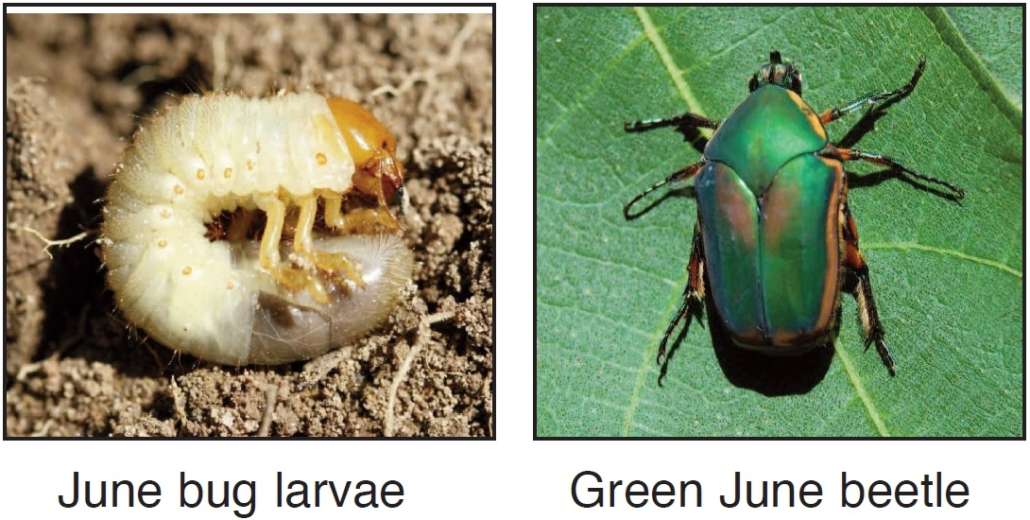
The grubs have been known to attack vegetables and other garden plants, such as lettuce, raspberries, strawberries, potatoes and young ornamental trees. Maintaining a healthy lawn is a good step in deterring the grubs from establishing themselves.
Injury to the roots and rootstock causes small saplings and tender tap-rooted plants like lettuce to wilt suddenly or to show stunted growth and a tendency to shed leaves prematurely. Plants growing in rows are usually attacked in succession as the grubs move along from one plant to the next. Chafer grubs feed below ground for three – four years before changing into adult beetles.
June bugs are harmless. They do not bite, sting or spread disease. However, I did see one of my friends move faster than I have ever seen her move before, while sitting around a camp fire last weekend, when one landed on her. To be honest, it’s the natural reaction by most people, including yours truly.
Again, they are harmless, but because they are attracted to light they can make an evening sitting on your porch or deck a little unpleasant. Even if there is no light outdoors, they can be attracted to lights inside your home. I know at camp, when we’re spending time indoors after dark, they come “knocking” on our windows. The sound of June bugs buzzing and bumping against window screens in early summer is a very common occurrence over many parts of the U.S. Adult June bugs are extremely clumsy, especially in the air.
Scientists are still undecided on the precise explanation for this behavior. Several thoughts have been advanced, but no single theory has come about that can account for why so many different nocturnal insect species gravitate to sources of light. June bugs usually are a half-inch to an inch and a quarter in length. They can fly and you will find them swarming around street lights at night.
Now, let’s do some “did you know.”
- Exposure to light for longer intervals will kill June bugs. That is why you will find them dead in the morning under porch lights and windows.
- Don’t leave a window open during May-June period. They will enter your house and die, leaving you with a mess to clean up. If they do enter, remember, they don’t bite and are harmless, just annoying.
- There are over 200 different species of June bugs in the United States.
- A natural enemy of the June bug is the pyrgota fly larva, which feeds on the beetles, eventually killing them.
- The June bug larvae, called white grubs, are considered excellent fish bait, and are staples in the diets of native people in South America, Australia, and Asia.
- Have a pet lizard or toad? The beetles make excellent, tasty food for them.
There is another popular June beetle that’s active during the day. It is the Green June Beetle, and are found in our region of the Northeast, extending from Maine to Georgia and as far west as Kansas. These are not very good for the garden either. The head, legs and under-body is shiny green, while its wings are dull metallic green, with slight gold contrast to its sides.
Numerous songs have been written about June bugs, to include: “Junebug”, by The B-52s; “Junebug”, from the album Good Morning Spider by Sparklehorse; “Junebug”, by Robert Francis; “June Bug”, by Melvins; “Junebug”, by Stan Van Samang; and “Junebug”, by Kate Ryan.
So day and night, during early summer, these beetles can be destructive to vegetation, and just plain annoying to humans.
Roland’s trivia question of the week:
Prior to 2011, when was the last time the Boston Bruins won a Stanley Cup?
Article updated June 12, 2024.


